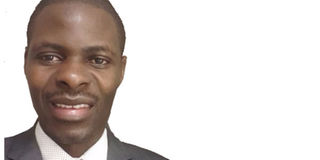Why democracy in theory is not democracy in practice

Moses Khisa
What you need to know:
- The West. In many Western countries, supposed to be beacons of free and democratic societies, democracy has been in crisis.
The distinguished Indian economist and nobel laureate Amartya Sen suggested that democracy emerged as the most important universal value of the last century. When Sen made this claim in the early 2000s, there had been a worldwide surge in embracing democracy throughout the 1990s in the shadows of the collapse of communism and the retreat of totalitarianism. The latter system had held sway in Eastern Europe and around the world.
Although taking different stripes, totalitarian regimes were all largely characterised by excesses of ruling parties and egregious violations of personal freedoms. In asserting that democracy was the most important universal value of the 20th Century, Sen did not seek to regurgitate a triumphalist posture about how democracy and free markets had defeated communism and conquered the world, in Francis Fukuyama’s the End of History argument.
Rather, Sen sought to underline the extent to which the idea (and indeed the ideal) of democratic government held value and could be defended. Theoretically speaking, Sen proposed three key core values that constitute the democratic ideal: First, the intrinsic value, the fact that a democratic system of government assures the exercise of freedoms and liberties, something that is valuable in itself because human beings derive happiness and ‘the good life’ from a free environment. Second, is the constructive value of a democratic system whereby citizens and members of the public are able to deliberate and communicate with one another in ways that help solve collective problems. Third, a democratic system has instrumental value in the sense that it is possible to achieve other goals and ends in society through democratic institutions and processes. That is, a democratic society can prosper in part because certain actions and outcomes are possible.
On this third point, as an example, Sen notes that no modern democratic country has ever faced famine. Because famines tend to be man-made disasters, they have occurred in countries where governments curtailed media freedoms, repressed constructive political engagement, and where there was no openness and transparency. Since at least the mid-2000s, democracy as a principle and as a practice has come under sustained pushback in what some scholars have characterised as a ‘global recession.’ There has been a retreat of sorts and the questioning of democracy as the only credible and viable form of government.
In many Western countries, supposed to be beacons of free and democratic societies, democracy has been in crisis. Economic anxieties and sheer material deprivations have contributed to political apathy and distrust in governments and elected leaders. Happening at the same time that an authoritarian-governed China maintained an unmatched economic surge, has created room for populist politicians and upped resentments against institutions that are pillars of democratic governance. The rise of nativist movements and the flouring of ultra-nationalist political agendas that fuel racism, xenophobia and misogyny have delivered a heavy blow to the three values of democracy outlined above.
Across the African continent, rulers hitherto seen as leading the expansion of the frontiers of democracy have eroded the very principles they are supposed to defend. The recent cases of Alassane Ouattara in the Ivory Coast and Adama Barrow in The Gambia underscore the problem with rushing to refer to opposition actors as ‘pro-democracy,’ as the Western media and academia tend to. Today’s ‘pro-democracy’ activists and Opposition leaders quickly turn into autocrats and anti-democrats once they taste the poisoned chalice of state power.
Closer home in Uganda, detractors and cynics of varying hues have seized on the problems in the West and the failures at play in Africa to call for total rejection of the ideal of democracy, which they conveniently charge as alien and unhelpful. It is easy for them to fault democracy and point to its flaws, but it is tough to articulate an alternative that is internally coherent in theory and has worked successfully in practice. The short-term returns from authoritarian rule can be quite alluring and deceptively enticing. But for the long haul, building institutions that simultaneously sustain social stability and economic prosperity is the most complicated tasks of any society. One way or the other, a country that attains stability and prosperity must have mechanisms of assuring accountability and justice, fairness and voice in public matters as well as a shared vision for both the present and the future.
For all its flaws internal contradictions and conflicts, a democratic system of government is theoretically justifiable on many grounds. How it actually functions is dependent on the context and history of a specific society. The biggest folly has been in trying to spread a one-size-fits-all template of democratic practice around the world. Even worse is the tendency to equate democracy with elections and to present elections as the route to solving all society’s problems.
Khisa is assistant professor at North Carolina State University (USA).
[email protected]




